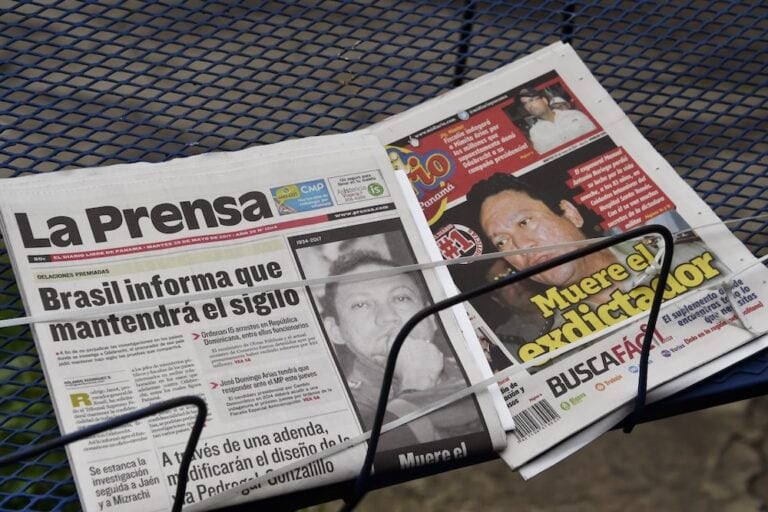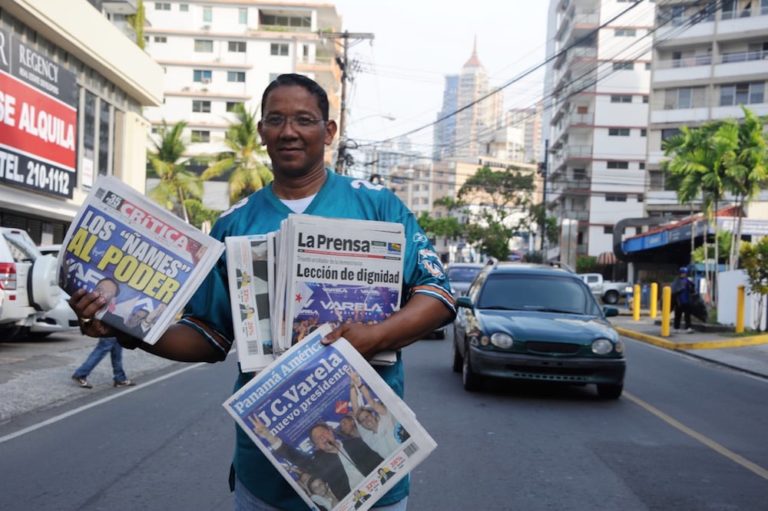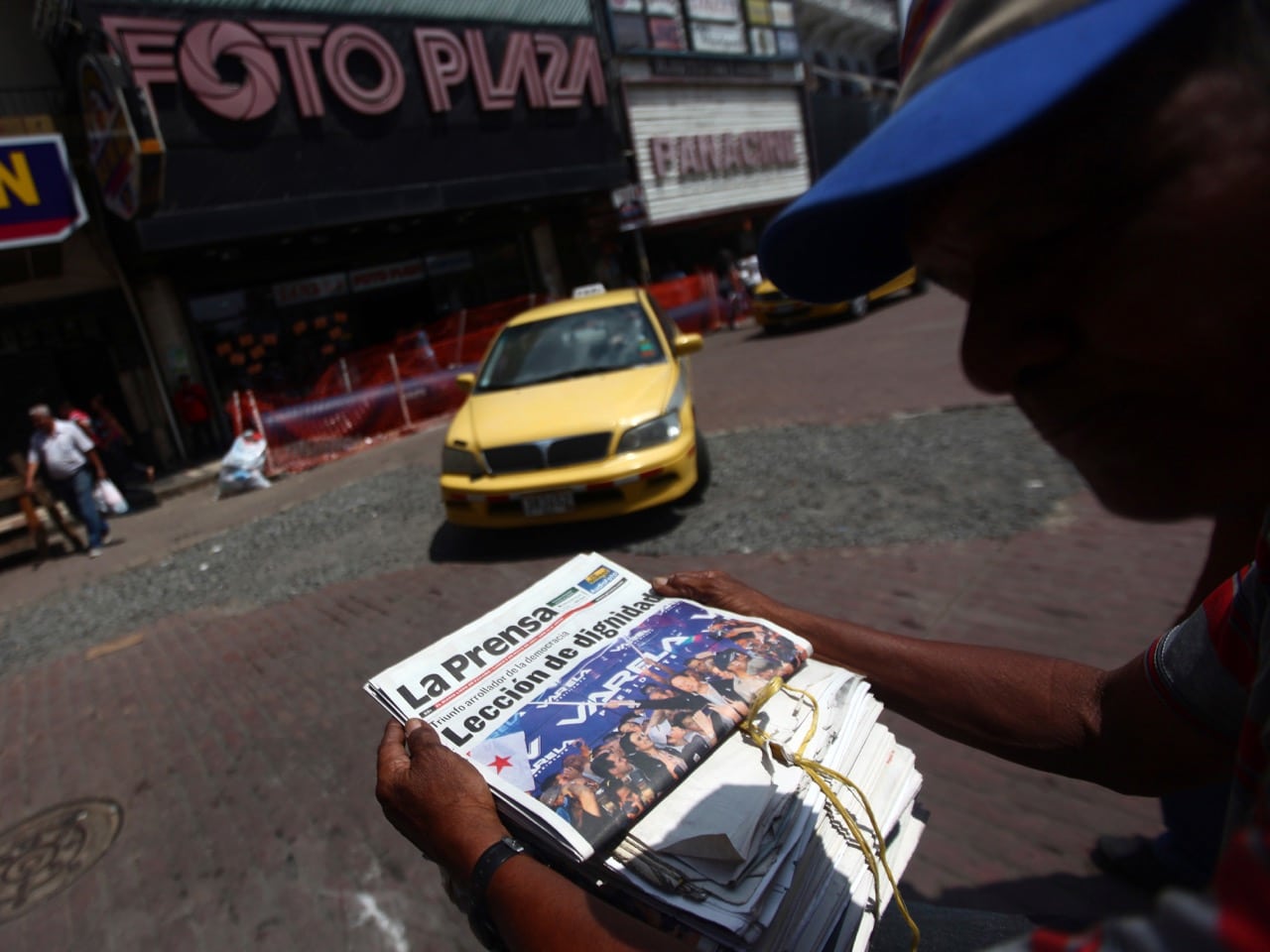(RSF/IFEX) – The following is a 16 May 2002 RSF press release: PANAMA Legal harassment of the media continues Reporters Without Borders (RSF) expressed its concern today that a radio and a newspaper journalist currently on trial for defamation risk being sent to prison for two years and appealed to Panama’s chief justice to ensure […]
(RSF/IFEX) – The following is a 16 May 2002 RSF press release:
PANAMA
Legal harassment of the media continues
Reporters Without Borders (RSF) expressed its concern today that a radio and a newspaper journalist currently on trial for defamation risk being sent to prison for two years and appealed to Panama’s chief justice to ensure that they are not jailed. “Making what journalists say a crime is an attack on the free flow of information, guaranteed by Article 19 of the International Covenant on Civil and Political Rights, which Panama has ratified,” said RSF secretary-general Robert Ménard in a letter to Supreme Court president Adan Arnulfo Arjona. The two journalists on trial are Miguel Antonio Bernal, presenter of the programme “Alternativa” on Radio Exitosa, and Ubaldo Davis, editor of the satirical weekly La Cáscara News. RSF is also concerned about the suing of Monica Palm, of the daily paper La Prensa, for “damage to reputation”. Ninety journalists are currently being prosecuted for defamation in Panama.
Ménard noted that the UN Special Rapporteur on Freedom of Expression and Opinion said in a report on 18 January 2000 that imprisonment for peacefully expressing an opinion was a serious violation of human rights. Ménard added that Principle 11 of the Declaration of Principles on Freedom of Expression adopted by the Inter-American Commission on Human Rights says laws that penalize offensive expressions directed at public officials are an attack on freedom of expression.
Bernal was tried for defamation on 14 May and Judge Lorena Hernández said she would announce her verdict within 30 days. Under Article 173a of the criminal code, Bernal risks up to two years’ imprisonment. He has been sued by former national police chief José Luis Sossa since he said in a TV interview on 2 February 1998 that the police were responsible for the beheading of four prisoners by fellow inmates at a jail on Coiba Island a week earlier. He had demanded a commission of inquiry into the affair. Bernal’s lawyer asked the court to dismiss the suit because of procedural errors.
Davis, who is also a TV presenter, was tried for the same reason on 14 May. The verdict in his case will also be handed down within 30 days. Davis asked for the case to be dismissed for procedural reasons as well. He was sued for defamation by former interior and justice minister Winston Spadafora in September 2001, when the first issue of La Cáscara News carried a satirical article about a supposed affair between President Mireya Moscoso and her former health minister, José Terán, and with Spadafora. The paper also printed two photo-montages of the president in the arms of her ministers. On 19 September, after the issue appeared, Davis and two colleagues were arrested and the paper was banned on grounds they had contravened the 1978 law on the procedure for starting up a new publication. They were released two days later.
Palm was summoned to appear in court on 21 May to answer a complaint by Mayor Alfredo Aléman, a controversial businessman and close aide of former President Ernesto Pérez Balladares, who accuses her of damaging his reputation. Palm, who risks up to two years in prison, has not been told which of her articles are being objected to. Aléman is thought to have been one of the main financial backers of the unsuccessful attempt by the current chief state prosecutor, José Antonio Sossa, to get elected as a parliamentary deputy. Sossa is now the legal superior of the judge trying the case against Palm.
In December 2000, RSF called on the Panamanian authorities to ensure that prison sentences for media offences were abolished. At the time, the organisation noted that the disproportionate punishment for offences had the effect of inhibiting a journalist’s work, which amounted to violating the right to inform the public and of society’s right to be informed.


